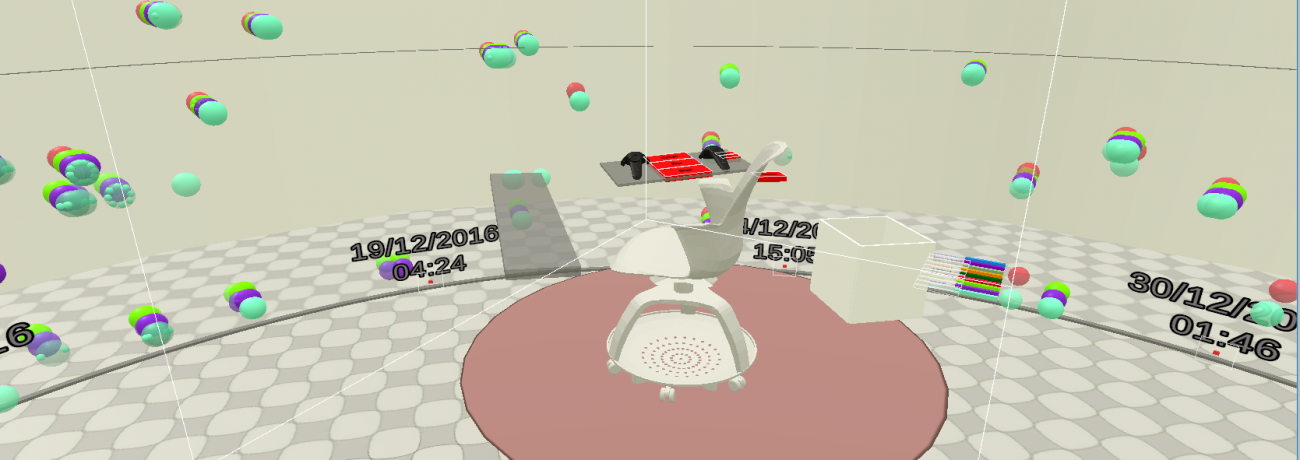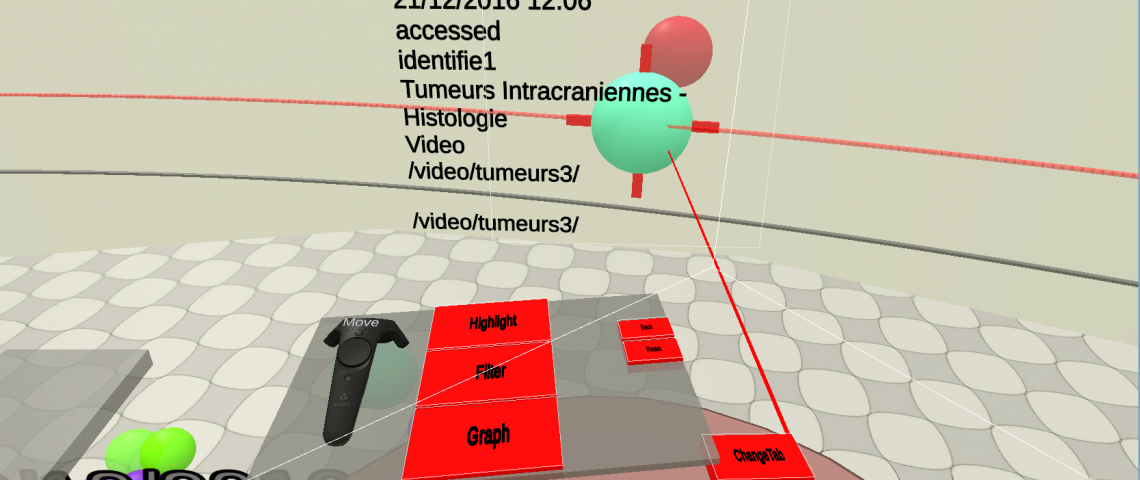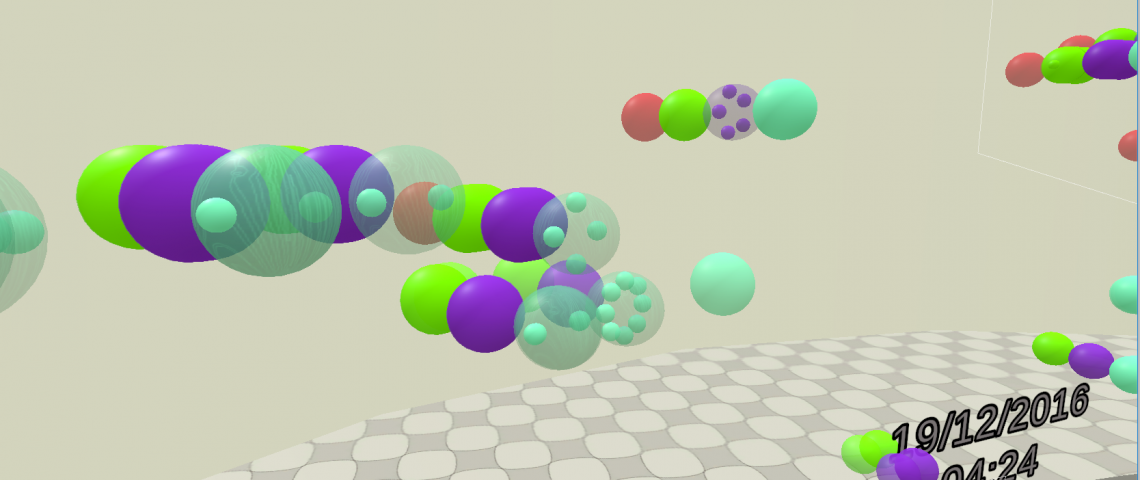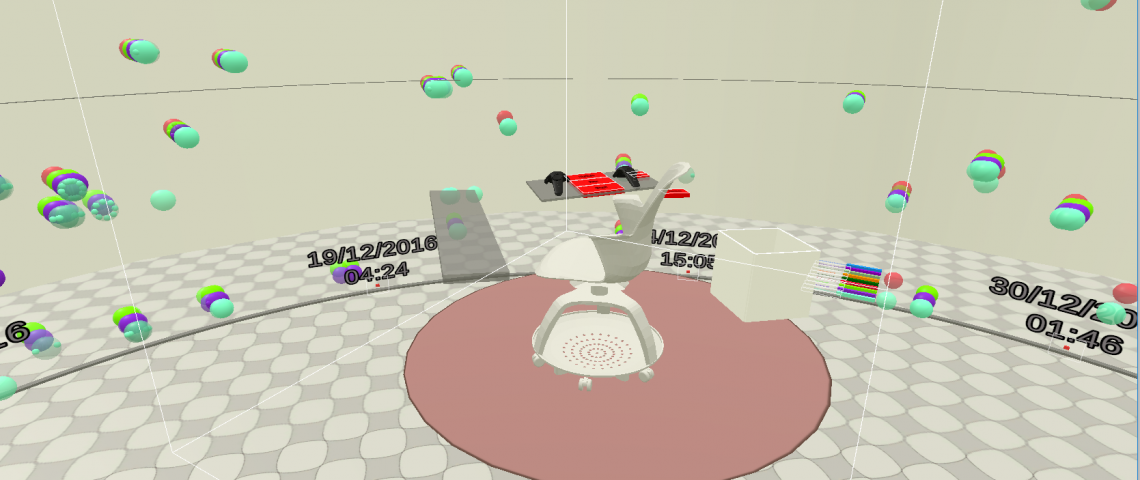Initially launched as a one-year start-up, IDEA has been extended to include a three-year thesis: Ph-IDEA. The project will develop an immersive analysis solution in virtual reality and combines input from an interdisciplinary team with expertise in design, data visualisation, data science, visual analysis and perception (LS2N, READi Design Lab).
Winner of Two Calls for Research Projects: start-up (2016) and thesis/post-doc (2017)
2 laboratories
- LS2N DUKe team and IPI
- READi Design Lab
About the project
IDEA’s research focuses on three areas:
- The representation of symbolic data in an immersive environment
- Modes of interaction with data
- Methods of evaluation involving analysis of immersive data
The project combines input from an interdisciplinary team with expertise in design, data visualisation, data science, visual analysis and perception.
After initial studies, the team has decided to focus on an immersive analysis solution in virtual reality, with the analyst seated on a mobile chair fitted with a tablet.
Results
Two data mining prototypes have been developed:
Prototype 1: sequential data, use of controllers, single or multiple data points, fixed axes, free navigation and varied distances between data
Prototype 2: multi-dimensional data, manual interaction, 3-D glyphs, positioning of data around the analyst, restricted navigation.
Both prototypes form a basis for developing an open source environment for mining immersive data in virtual reality.
Publications and/or communications
G. Cliquet, M. Perreira, F. Picarougne, Y. Prié, T. Vigier, “Toward HMD-based immersive Analytics”. in Immersive analytics Workshop, IEEE VIS 2017, Phoenix. oct. 2017. 4p.
Prospects
Joint funding from RFI OIC (50%) and Université de Nantes (50%) has been made available for a doctoral thesis, beginning in September 2017 (PhIDEA). This will involve a number of targeted experiments, focusing on perception, tasks and activity. The research will be used to define best practices for representing and interacting with data in an immersive environment, and to evaluate use of the IDEA environment based on real data and professional analyses.
The team will also study co-operation in mining immersive data.
Combining computer science and design in an interdisciplinary project will provide opportunities for reflection on the working group’s practices, and to develop a methodology for designing mining systems for immersive data.
Students and interns will also support researchers in exploring the most promising leads.
Methodology
The project will draw on a range of methodologies:
- Iterative investigations – design+ software
- Structured experiments to test modes of representation/interaction
- Experiments with user/analysts on real data
Contacts
Adrien Fonnet, adrien.fonnet@univ-nantes.fr
Yannick Prié, yannick.prie@univ-nantes.fr
Grégoire Cliquet, g.cliquet@lecolededesign.com
Fabien Picarougne, fabien.picarougne@univ-nantes.fr
Matthieu Perreira, matthieu.perreira@univ-nantes.fr
Toinon Vigier, toinon.vigier@univ-nantes.fr





